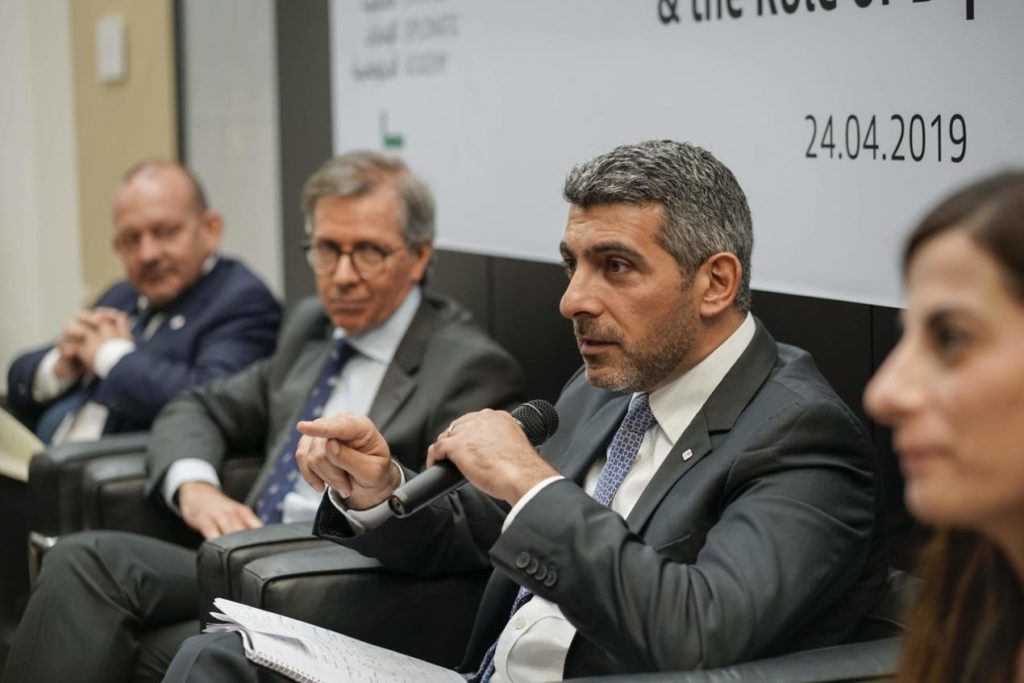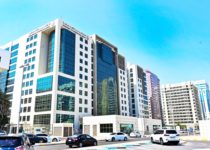The Emirates Diplomatic Academy (EDA), in partnership with the Ministry of Foreign Affairs and International Cooperation (MoFAIC) and the International Committee of the Red Cross (ICRC), hosted a panel discussion on ‘Humanitarian Challenges in the Sahel and the Role of Diplomacy’.
His Excellency Sultan Mohammed Al Shamsi, Assistant Minister for International Development Affairs at MoFAIC, inaugurated the event that drew the participation of diplomats and representatives of non-governmental organisations, as well as students, faculty and staff of the Academy.
Dr Sara Chehab, EDA faculty member and Academic Programmes Manager, moderated the discussion, with panellists including His Excellency Bernardino León, Director General of EDA; Patrick Youssef, ICRC Deputy Regional Director for Africa; and Jean-Nicolas Marti, ICRC Head of Delegation in Mali.
Experts on the panel stressed the urgent need for humanitarian diplomacy, cross-border dialogue and aid relief in resolving the current crisis in the Sahel. Comprising 10 countries and home to some 300 million people, the Sahel region in Africa is one of the most environmentally degraded areas of the world, with temperature increases projected to be 1.5 times higher than the global average, according to the UN.
In his keynote address, His Excellency Sultan Mohammed Al Shamsi said: “For the past five years, the UAE has been one of the world’s largest providers of official development assistance relative to gross national income (GNI). In 2018, contributions to least developed countries in Africa reached US$1.15 billion, corresponding to 15.3 per cent of the total disbursement of UAE foreign aid.
Foreign assistance is not just a question of funding, but about finding a new way to deal with the complexities and tensions that surround humanitarian emergencies around the world, in particular for the Sahel crisis. While it is true that humanitarian architecture is complex and the coordination process is challenging, escalating security measures increase the challenges to humanitarian actors in accessing the populations most in need of assistance. I thank EDA and ICRC for providing a productive platform for this vital discussion.”
His Excellency Bernardino León said: “In line with its aim of nurturing future diplomats that lead with compassion and realise the importance of humanitarian work, the Academy is pleased to host such prominent humanitarian leaders. The event has provided our students with valuable insights into the challenges involved in implementing humanitarian action across the world and an in-depth understanding of the practical connection between diplomatic and humanitarian endeavours.”
For his part, Patrick Youssef said: “The Sahel is affected by overlapping and spreading conflicts. Climate change, food insecurity and violence are exacerbating humanitarian crises and disrupting traditional means of survival in Burkina Faso, Chad, Mali, Niger Mauritania and Nigeria. In response, the ICRC is conducting major humanitarian efforts by providing food aid, clean water, medical care and the vital means of production to people, thereby helping them to restore their livelihoods. The ICRC constantly reminds all weapon bearers to protect the lives and dignity of civilians. Discussions, such as the panel hosted today by the EDA with MoFAIC, are key in defining how we can improve the humanitarian situation in the Sahel, in the face of ongoing challenges”.
EDA is a distinguished educational institution that serves as the driving force in the UAE’s efforts to qualify Emirati talent for diplomatic careers and positions of leadership in support of the nation’s foreign policy objectives. The Academy brings international expertise and experience to the UAE to prepare its graduates to represent their country abroad at the highest levels.










